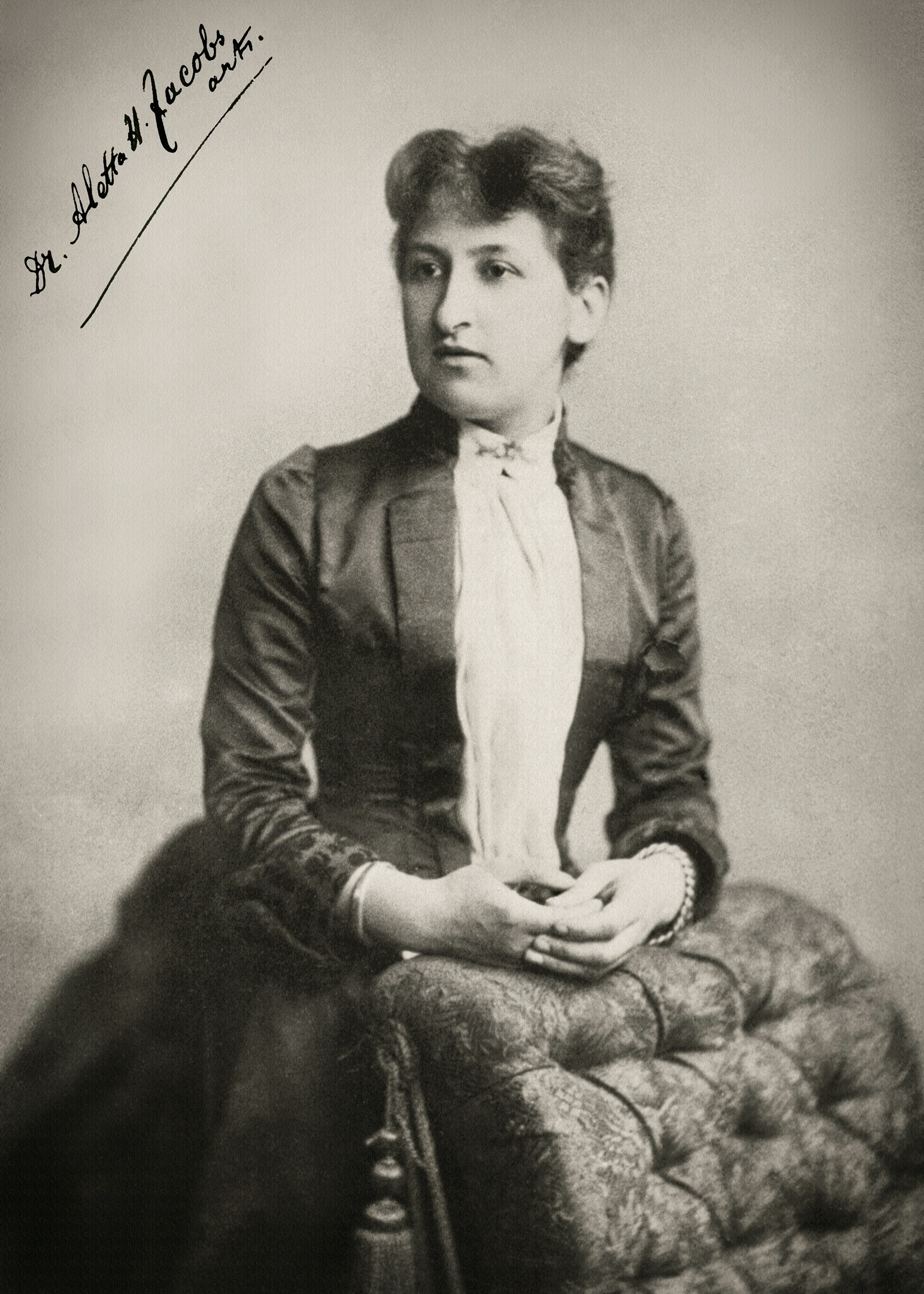‘Such a thing could not have happened in Leiden or in Utrecht. It was possible only in Groningen, in the radical North.’

Cherished daughter of the Alma Mater
‘Such a thing could not have happened in Leiden or in Utrecht. It was possible only in Groningen, in the radical North.’ These were the words spoken by Professor of Law B. D. H. Tellegen in 1872, on the occasion of the first examination taken by Aletta Jacobs at the University in Groningen. In April 1871, she was the first woman in the Netherlands to be admitted as a student to the degree programme in medicine. It was indeed not by chance that Groningen would welcome the first female student. In the second half of the 19th century, both the University and the province were remarkably progressive, as also evidenced by a sympathetic stance towards the emancipation of women. In 1870, Tellegen and his philosopher colleague, Bernhard van der Wijck, were the first Dutch professors to write brochures advocating for better educational programmes for girls.
Jewish background
Aletta Jacobs’ access to the University was also due to other factors. She came from a Jewish background that attached high value to learning, including for girls. Moreover, her father, the village doctor Abraham Jacobs, had come into close contact with two prominent Jewish physicians in the city of Groningen: Levy Ali Cohen, an inspector for the State Medical Inspectorate (Geneeskundig Staatstoezicht), and Professor Samuel Rosenstein. In 1870, on the advice of Ali Cohen, Aletta Jacobs was certified as an apprentice pharmacist—a programme that had been open to girls for a few years. Thereafter, Minister Thorbecke sought to grant her access to medical studies based on this certification. Rosenstein welcomed her in the address that he delivered as Rector Magnificus at the opening of the academic year in October 1871.
Woman's voting rights
Aletta Jacobs received her undergraduate degree in 1878 and, on 8 March 1879, she defended her doctoral thesis, based on a study of localization of physiological and pathological phenomena in the cerebellum, in the university’s Senate Room. The choice of topic was unique, as hardly any research had been done in this field in the Netherlands. After completing her doctorate, Aletta Jacobs left for Amsterdam, where she opened a clinic primarily for women and children. She and her husband, Carel Victor Gerritsen, were active in the free-thought movement and, in 1901, they were involved in the establishment of the Vrijzinnig Democratische Bond (VDB: Liberal Democratic League), a leftist-liberal political party. She later devoted her life primarily to the struggle for women’s voting rights and to the peace movement.
Stained-glass windows
The University did not forget its first female student. On the golden jubilee of her doctorate in March 1929, the curators sent their ‘heartfelt congratulations’ to the ‘cherished daughter of the Groningen Alma Mater’. Aletta Jacobs replied that the University in Groningen had received her with great benevolence at that time and that it had never placed ‘any obstacle’ in her way. Upon her death a few months later, the university sent a wreath to the cremation ceremony, and the curators agreed to the plan to have a marble memorial plaque placed in the Academy Building—an initiative that was never carried out. Aletta Jacobs was portrayed in the stained-glass windows by Johan Dijkstra that were installed in the Aula between 1938 and 1953.
In 1990, the University installed a bust of her, created by Theresia van der Pant, in front of the Harmonie Building on the Oude Kijk in ’t Jatstraat.
